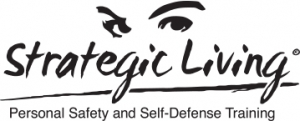April in Seattle: Sexual Assault Awareness and Prevention Month
April is also Sexual Assault Awareness and Prevention Month. Yes, the rates of rape and sexual assault in the U.S. have been in decline (1). Yes, rape hotlines and other support services are prevalent and visible. And yes, more women and men are becoming educated about sexual assault at the high school and college levels.
But rape is still one of the most underreported crimes. Over one in six American women have been targets of sexual assault. At least 30% of sexual assault happens to women under the age of 18, and these women face a higher lifetime risk for re-victimization. Rape still carries a stigma and “blaming the victim” attitude no other crime has to bear. And many victims still don’t connect someone forcing sex on them with “rape” or “assault.”
Victims of sexual assault are:
- Three times more likely to suffer from depression.
- Six times more likely to suffer from post traumatic stress disorder.
- Thirteen times more likely to abuse alcohol.
- Twenty-six times more likely to abuse drugs.
- Four times more likely to contemplate suicide. (2)
At their time of most need, they’re also more likely find less support and less contact with family, friends, and intimate partners (3). Most women are assaulted by someone they knew, and to whom they extended a common courtesy of trust. As the victim struggles to regain their sense of trust and security in any kind of relationship, all relationships feel the strain.
Back to April. After this year’s sodden winter, bright colors just cannot be stopped. Waves of daffodils, hyacinths and tulips shrug off the fickle weather. Buds are busting open on my super-early climbing clematis. Lilacs fringe the overcast sky in purples. And my cats are shedding like crazy.
April signifies the return of life and new beginnings. All that budding energy gives rise to anticipation of the future and a sense of freshness. Of all that is taken by assailants, it’s this frequent loss of optimistic anticipation that is most profound and devastating.
What to do: if you’re reading this, you are already concerned about safety. You’re savvy about assessing risks and making contingency plans. You’ve probably already taken a self-defense class. So what if you–or, more likely, someone you know–has been assaulted, maybe raped?
Recognize that the support you receive (or give) is crucial to a victim’s recovery. A good supporter is someone who won’t tell you what you did wrong or what you should’ve done, question why you were in the wrong place at the wrong time, suggest you led the assailant on, or wonder why you’re not over it yet. A good supporter is someone who will listen, believe you, and reassure you that you’re not to blame (4).
And recognize that rape happens because THERE WAS A RAPIST PRESENT. Not because someone’s jeans were too low-slung and tight, not because someone drank too much, not because someone went to someone else’s room. Because a rapist was there.
Because we all should enjoy April.
Notes:
(1) Bureau of Justice Statistics: http://bjs.ojp.usdoj.gov/content/glance/rape.cfm
(2) Rape, Abuse & Incest National Network: http://www.rainn.org/get-information/effects-of-sexual-assault
(3) Center for Disease Control: http://www.cdc.gov/ViolencePrevention/sexualviolence/index.html
(4) King County Sexual Assault Resource Center: http://www.kcsarc.org/content/publications, particularly Recovering from Sexual Assault, Surviving Sexual Assault, and Deciding What To Do When A Friend Needs Help.
from Strategic Living News & Views, April 2007
